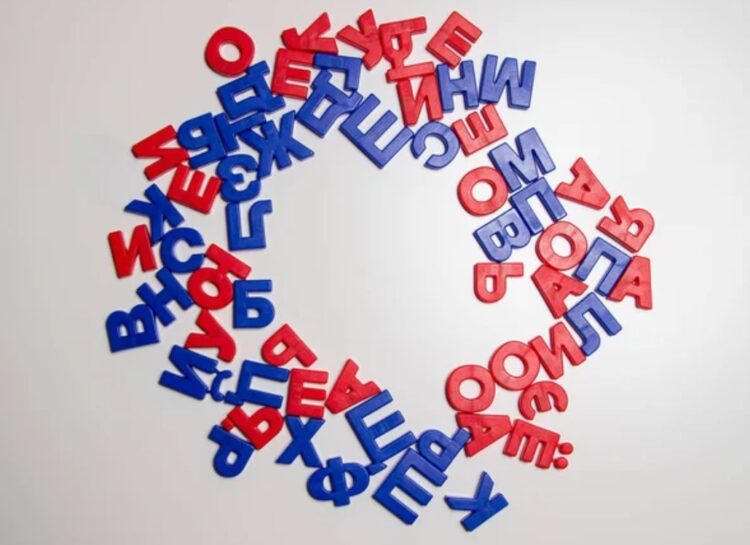Like any language, learning Russian takes time and dedication. However, with the right tips and advice, you can make the whole learning process a lot easier and quicker, and most importantly more fun.
Whether you want to learn Russian for professional purposes and career growth or for personal purposes like traveling or living in a Russian-speaking country, the language will open a whole new world for you.
Therefore, do not let its alphabet, genders, cases, prefixes, and suffixes discourage you from getting started on this amazing journey. No matter how difficult or scary it may seem at first, learning Russian can be fun and effective if you have the right tips to follow.
Page Contents
9 Tips to Learn Russian Better and Easier
Follow these tips to make learning Russian easier and more fun for you:
1. Learn the Russian Alphabet

Source: learnrussianlanguage.net
The alphabet is one of the first things you learn when studying a second language. So, in this case, you’d need to learn the modern Russian alphabet. Although it’s derived from the Cyrillic alphabet, it’s not the same alphabet. Keep this in mind when searching for it as many sites don’t make a difference between these two.
The modern Russian alphabet contains 33 letters: 21 consonants, 10 vowels, and 2 signs that aren’t pronounced. The alphabet will serve you as a foundation for writing and reading in Russian, while also helping you to speak and pronounce Russian words correctly.
2. Learn Russian Phrases and Common Words
Learning some common Russian words and phrases like greetings will give you a foundation for a simple conversation in Russian. These could be words and phrases related to shopping, transportation, eating out, and any other everyday topic.
Start with the basic words and phrases such as Привет (Hi), Пока (Bye), Как поживаешь? (How are you?), Как Вас зовут? (What’s your name?), Спасибо (Thank you), Извините (Sorry), Где…? (Where is…?), etc.
3. Learn Cognates and Loanwords

Source: depositphotos.com
Cognates are words in different languages with the same origin. Loanwords are words borrowed from other languages. You’ll be surprised how many Russian words sound the same or are even the same as words in your native language.
For example, Интерне́т =internet, му́зыка = music, etc. So, look for cognates common in your native language as well as loanwords to expand your Russian vocabulary quickly and easily.
4. Stress Syllables Correctly
If a Russian word contains at least two syllables, one of them is always stressed. This syllable should be pronounced with a longer sound and in a stronger tone. The stress can move from one syllable to another, depending on the word form.
Stressing the wrong syllable can change the form of the word and sometimes even the meaning. So, memorizing how Russian words are stressed is the only way to learn them correctly.
5. Practice the Soft and Hard Consonants

Source: learnlanguagesfromhome.com
Some Russian consonants come in two different forms: soft and hard. The type of consonant you’ll choose depends on the one that follows. For example, люк and лук have a different л (the sound /l/). The л in люк is soft, and the one in лук is hard.
In general, soft consonants are followed by я, ю, ё, и or е or the soft sign ь. Practicing the Russian hard and soft consonants will help you sound more like a Russian native speaker.
6. Practice the Russan R
The rolled or trilled R is the trademark of the Russian language. For a foreigner whose native language doesn’t have this R, such as in the English language, this can be challenging. However, if you want to learn to speak Russian or improve your spoken Russian, you’ll have to practice it to perfection.
7. Immerse Yourself in Russian Every Day

Source: mondly.com
The fastest and most effective way to learn a language is through immersion. Even if you can’t go to a Russian-speaking country, you can immerse yourself in Russian at home. For example, you can watch Russian movies or videos, listen to Russian music, read Russian forums, websites, and magazines, or label objects in your home with their Russian names.
All these simple things can make you more fluent in Russian. For best results, make a plan of how to insert a little Russian into your everyday life. This can include activities such as listening to Russian podcasts while commuting, watching Russian cartoons every night, or using a Russian audio track as an alarm in the morning.
8. Find Online Russian Tutors
The best way to learn Russian online is to find a great online Russian tutor on language learning platforms such as LiveXP, Preply, Italki, or Verbling. A good Russian tutor will help you identify and target your weak points. They will provide you with constant interaction and feedback on how you’re doing and how to do better.
Also, they will suggest some great strategies to learn some aspects of the language better and faster. They may also recommend some learning tools that you can use to make the learning process easier.
Plus, you’ll have a native Russian speaker to communicate with regularly, which will significantly improve your spoken Russian.
9. Have Fun while Learning

Source: cnbc.com
Learning Russian should and can be enjoyable. To make it more fun, you can read Russian comics, watch Russian movies, TV shows, documentaries, and cartoons, learn with memes, flirt online, and even play Russian video games.
Imagine yourself completely immersed in a video game where all characters speak native Russian and all instructions and maps are in Russian. Some online multiplayer games allow you to connect and communicate with players from other countries.
So, make sure you choose a team with Russian members or even better, download a game completely in Russian such as The Witcher 3: Wild Hunt. This way, you can set the in-game audio, subtitles, and menus to be in Russian. If you aren’t that brave, leave the subtitles in your native language.





